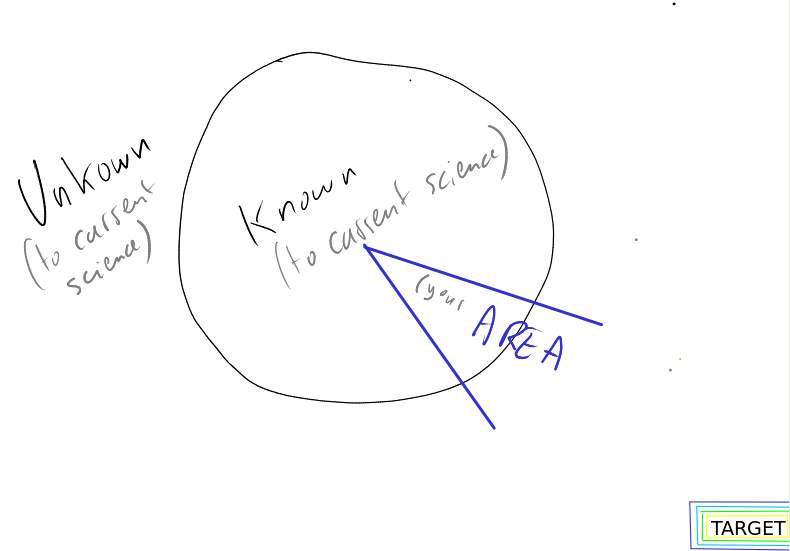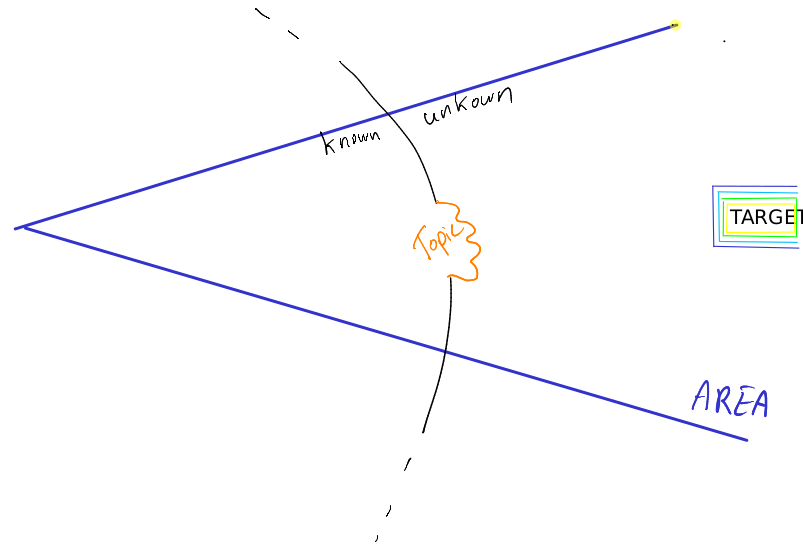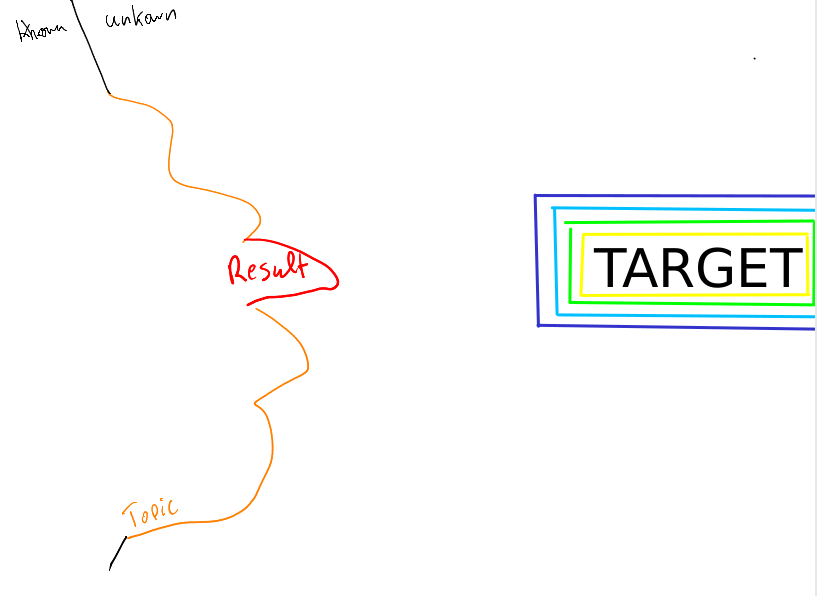Welcome to the Academia community!
DISCLAIMER
I was all ready to give you advice about how to read articles at different level of depth (and select which ones to read more deeply), but then I realized that you are really asking about how to "choose what to work on", which is related (you do that by studying articles describing previous research) but much more an issue of mindset than technique. I will try to answer this later aspect, you let me/us know if you also have issues with the technical ones!
[Disclaimer: My horrible drawings were inspired from the much better and clearer ones from The Illustrated guide to a PhD which I could not find back when I wrote the first draft of my answer: it might be even more helpful than my answer!]
A MINDSET FOR RESEARCH
When you write "I feel like I have spent too much time reading papers in order to find something nobody did before", I understand that your objective is to find "something nobody did before". But before finding answers, you might want to consider the problem of finding "questions that nobody asked before" first: the question before the answer, and the extensive reading is necessary to know which questions to ask (not just to learn techniques which will help finding answers: most of such techniques you are supposed to have already acquired).
A CONCRETE EXAMPLE
Let me take a concrete example:
- A talented student came to work with me, excited about the idea to improve some aspects of the Flipped Classroom methodology that I used in the course he took with me, where students watch video-capsules at home and solve problems in group in the time we spend together.
- We discussed about giving more immediate incentives to students for watching and studying the video capsules before coming to the problem solving sessions, like asking them to answer for-credit "reading questions" about the content of the video before the problem sessions: The student was pretty excited about it.
- Doing the bibliography, he found two research projects which did exactly that, validating that when the instructor spend the time to write good reading or concept questions which pop-up at random intervals while watching video capsules, the student's attention and retention is raised, and their motivation to watch the video capsules. The student was slightly taken aback (not to say crushed, but kind-of).
- Not in the articles, but in one of the recorded talk about those results, one author mentioned how the bottleneck of such methodology was really about the amount of work required from instructors to write such question (which is much harder and new to them than "just" recording video capsules), which in many case is the main hurdle discouraging instructors to adopt such methodology. An additional obstacle to our research!
- As I had results about having students recording and evaluating video capsules for and by their peers, we jumped to the hypothesis that students could write and validate reading questions with only a minor amount of work from the instructor to calibrate the system. The student now has his problem to solve.
- The student's first work will be to reproduce the original result with reading questions written by instructors (he is not too excited about it), and the final work will NOT be to find the optimal way for such questions to be written at lower cost. His work will be to explore alternative answers/solutions to the question ("how to improve student's attention and motivation to watch video capsules") and to compare them, hence contributing to humans' knowledge.
SOME ILLUSTRATIONS
I think it helps thinking about research in terms of "pushing the envelope of human's knowledge" rather than "solving problems" (which is more an Engineer's job, anyway).
- Caricaturing a lot, you can visualize human's knowledge as a volume in many many dimensions, of which your area of research is only a portion:

- Among such an area, your topic/question of research is only one among many:

- Among the various answers to the same topic/question, your result might be a new answer, or a unification theory of several existing answers:

And always, always, you feel like you are doing only small steps toward the real target, the final objective, "solving the problem".
But science is literally building on the shoulders of the scientists who came before you, and if you do not need to reinvent all their inventions in order to make a new one, you do need to study many of those in order to even know which question to ask first, and to try to improve an existing answer or to bring a completely new one!
Do discuss this with your advisor: his role is not to "give you the right question" (you would not learn how to find good questions if he did) but rather to advise you, to nudge you, on the way to what could be good questions (it is research after all, it would not be if you were not erring a little bit in unknown territory), and in the process of finding (and communicating!) reasonable answers to such questions.
I hope it helps, keep courage, keep searching, and keep learning!



